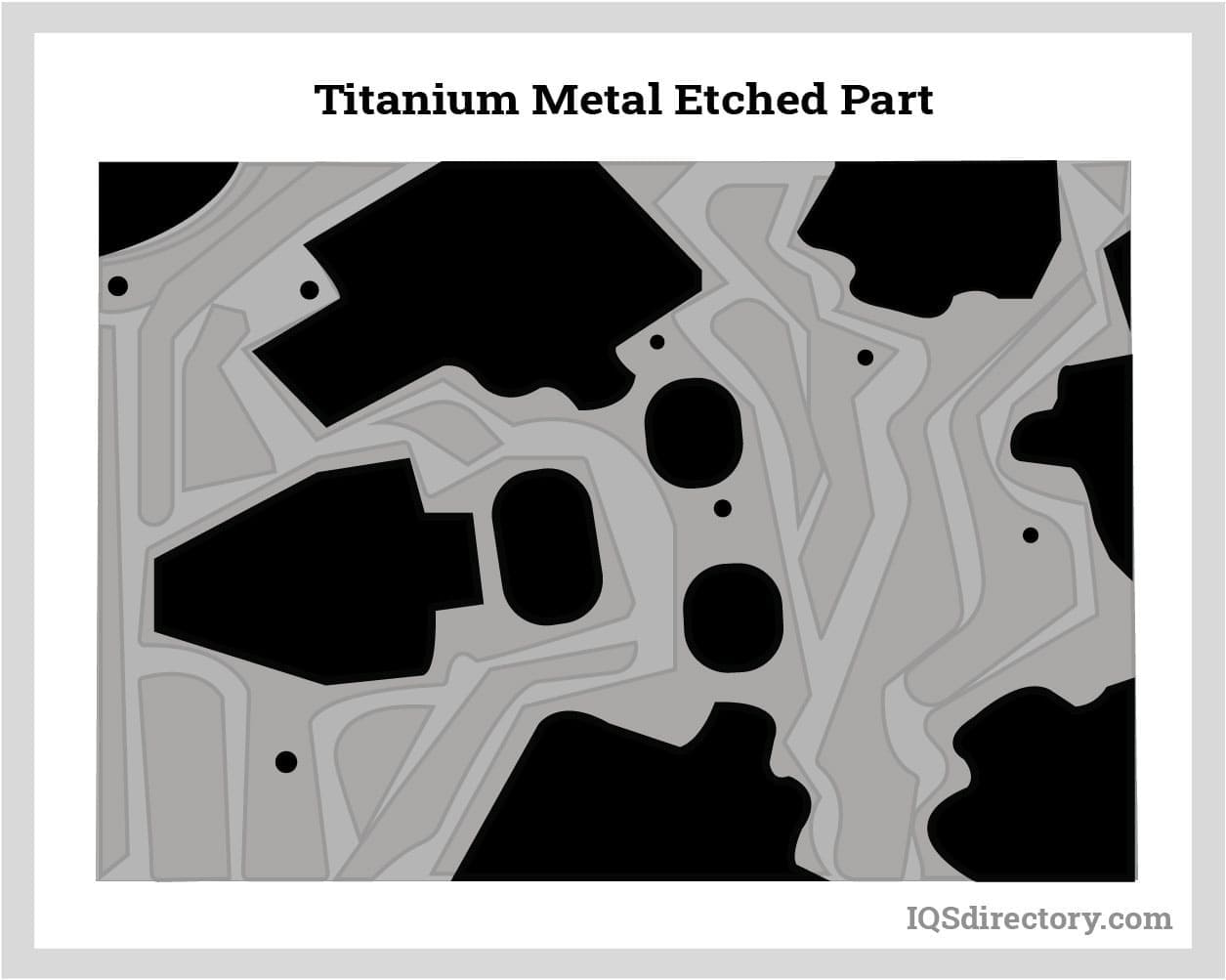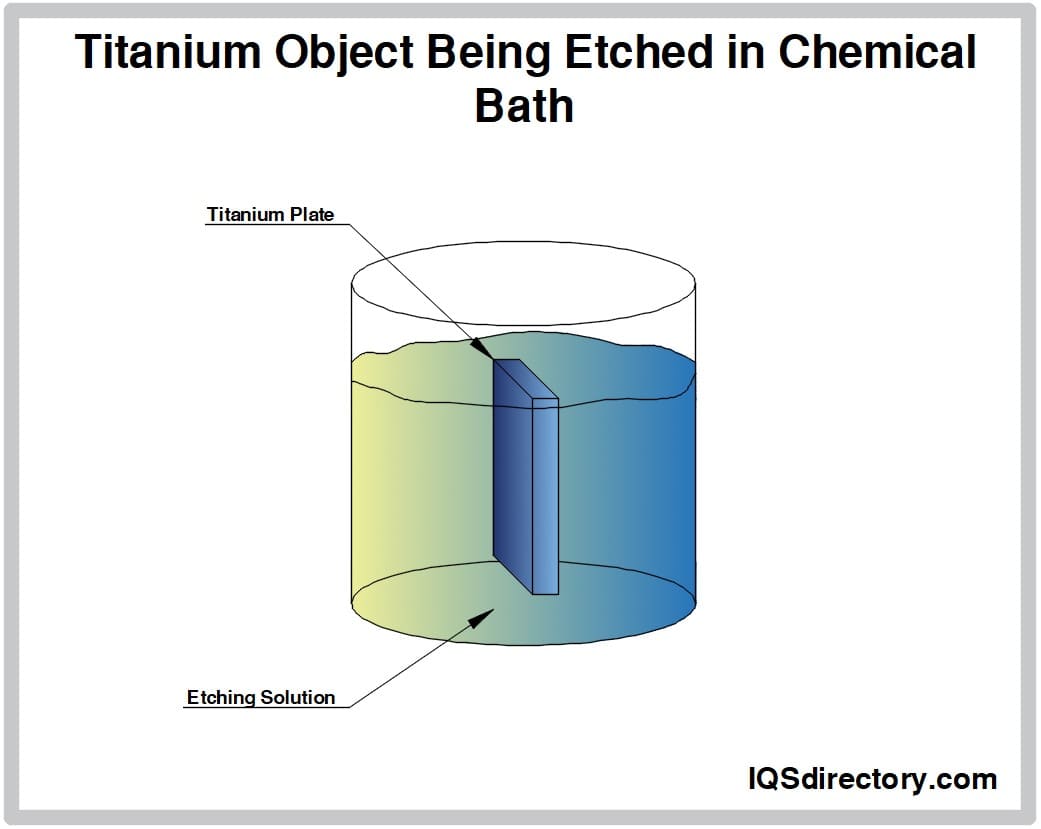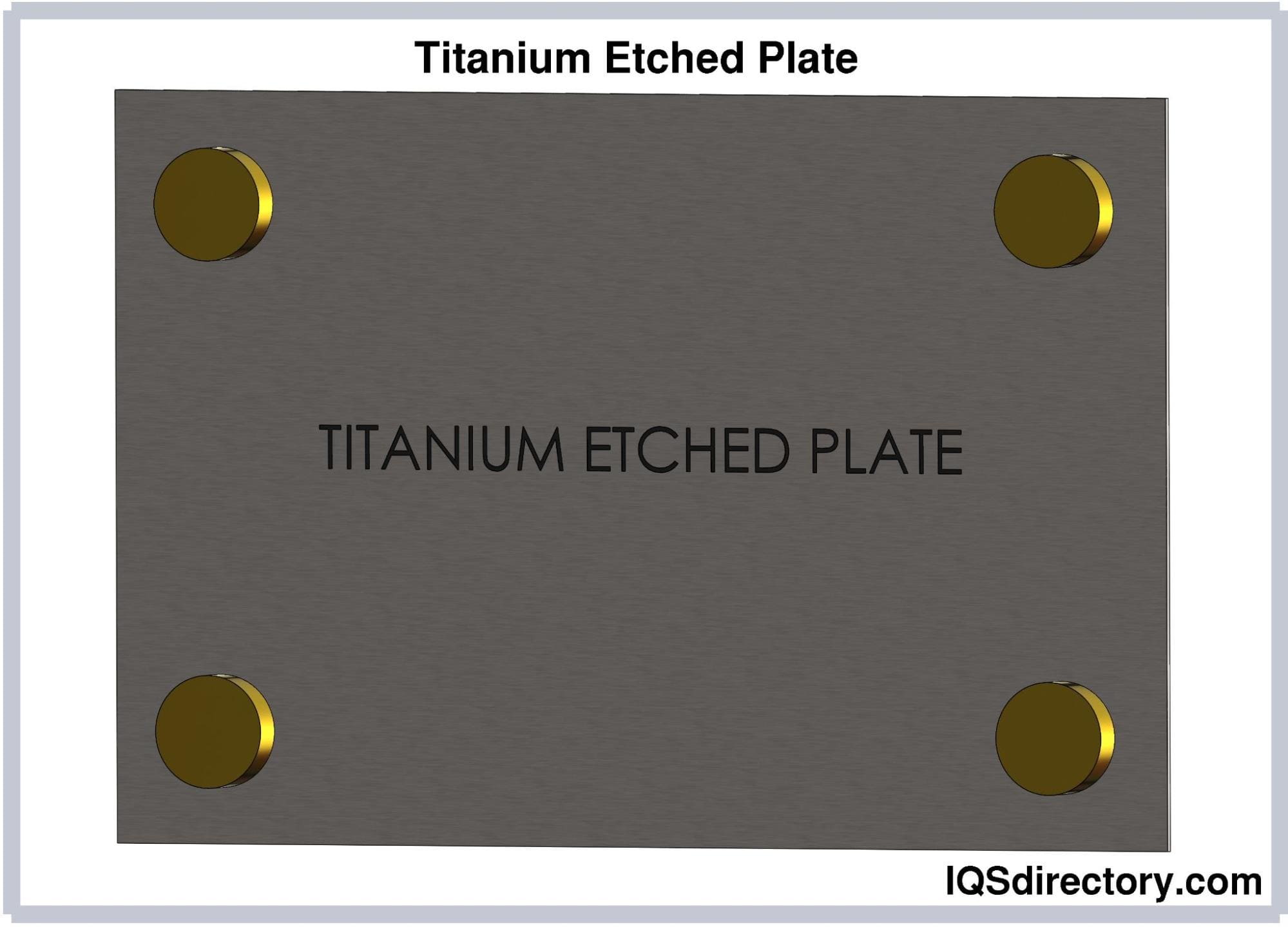Titanium Etching
An acid is used in titanium etching to change a titanium part's surface
permanently. The acid acts as a corrosive, eating away at the metal's
surface and creating pitting and oxidation in some places. This process
produces a distinctive effect that can resemble tarnished metal or, when
done carefully, can produce a mirror-like sheen. In essence, this procedure
enables one to give titanium items' surfaces a distinctive finish. Jewelry,
medical equipment, and other products requiring a high level of durability
frequently use this method. When done properly, titanium etching can produce
a distinctive, aesthetically pleasing, and corrosion-resistant finish.
However, it's crucial to remember that not all titanium alloys can be
etched. Generally speaking, the greatest candidates for etching are titanium
alloys with a modest amount of nickel.

Why Titanium Etching is Preferred
There are various reasons why one might want to etch titanium. One of
these—possibly the most typical—is that it can be a reasonably priced method
of giving titanium objects a distinctive finish. Etching titanium parts are
frequently substantially less expensive than machining or using other, more
conventional techniques. Additionally, titanium etching might increase the
robustness of items. A titanium item may be strengthened by the acid used in
the etching procedure by hardening its surface. Additionally, etching
titanium parts can aid in preventing corrosion. A titanium surface that has
not been etched may be more susceptible to rust than one that has undergone
the oxidizing process.
The adaptable metal titanium (Ti) is renowned for its biocompatibility, high
tensile strength-to-density ratio, and resistance to heat and corrosion. Due
to these properties, Ti is widely employed in the aerospace, medical, and
automotive industries. There are various ways to work with Ti for
manufacturing; however, chemical etching is the most effective manufacturing
technique when working with Ti sheets or engraving Ti items. Compared to
other techniques like laser cutting or stamping, chemical etching titanium
offers more potential for large-scale production and significant cost
savings.
Titanium Etching Process
Cleaning and preparing the titanium part's surface is the initial stage in
the etching procedure. This step is frequently accomplished by using an
abrasive pad or machine to sand the surface. The cleaned component is then
placed in a chemical bath of water and sulfuric acid. The acid corrodes the
component by eating away at the surface. The thickness of the etched surface
determines the precise amount of time the item is left in the solution.
Typically, smaller components will etch faster than larger ones. Increasing
the temperature of the solution is another way to speed up the etching
procedure. The part's surface will have oxidized by the time etching is
finished. The part can then be cleaned out after being immersed in the
etching solution and dried.
Since titanium has great corrosion resistance, it may be the hardest metal
to etch. This quality means that high electron affinity etching solutions
are needed; hence, only hydrofluoric acid (HF) and ammonium bifluoride
(NH4HF2; hereinafter referred to as ABF) will etch titanium. Even though
both of these methods exist for etching titanium, HF is the most useful one.
Although both require rigorous safety measures, handling HF is simpler than
ABF and has a production-ready etch rate.
One can effectively etch Ti using HF. Though not optimal, this process
results in hydrogen gas (H2) generation. Its manufacture poses greater
safety challenges because H2 is so explosive. Nitric acid (HNO3) is
introduced to the reaction to lessen the creation of hydrogen during this
process.

The Advantages of Titanium Etching
-
The component's surface will oxidize, increasing its corrosion resistance.
-
The component will have a distinctive finish that will set it apart.
- The portion will be stronger since the surface will be thicker.
- Parts that are too large or expensive to grind can be etched.
- smooth edge profile
- smooth surface etch profile
- no surface burrs
- tight tolerances possible
- ±10% of material thickness
- complex geometries at no extra cost
- 1:1 aperture aspect ratio possible
- thicknesses from 0.010 mm – 1.00 mm
- part size up to 280 mm x 480 mm
- fast turnaround
- serial production capacity
- no heat-affected zones
- safer chemistry reduces personal and environmental risks
Limitations of Titanium Etching
- The etching procedure can take some time.
- The precise level of corrosion might not be under control.
- There may be variations in the surface finish.
- Some titanium alloys are not appropriate for etching.
- The finish on the surface could be prone to scuffing or peeling.
Conclusion
An acid is used in titanium etching to change a titanium part's surface
permanently. The acid acts as a corrosive, eating away at the metal's
surface and creating pitting and oxidation in some places. This produces a
distinctive effect that can resemble tarnished metal or, when done
carefully, can produce a mirror-like sheen. The component's surface will
oxidize, increasing its corrosion resistance. The component will have a
distinctive finish that will set it apart. The etched portion will be
stronger since the surface will be thicker. Parts that are too large or
expensive to grind can be etched.

To ensure the most constructive outcome when selecting a titanium etching
company, it is important to compare several companies using our directory of
titanium etching businesses. Each titanium etching company has a business
profile page highlighting their areas of experience and capabilities, along
with a contact form to directly communicate with the company for more
information or request a quote. Review each titanium etching business
website using our proprietary website previewer to quickly learn what each
business specializes in. Then, use our simple RFQ form to contact multiple
titanium etching companies with the same form.

